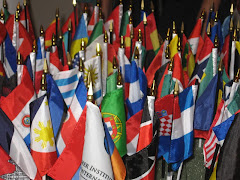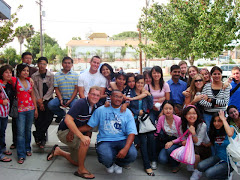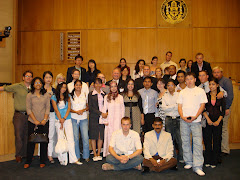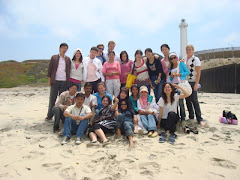
My perceptions of the causes of social conflict in my region:
First of all, I would like to give my thanks to the Hansen Summer Institute on Leadership and International Cooperation, for the great opportunity that it gave me by choosing me to represent my country to this promising international program. I would also like to thank our hosts that worked so hard to make this program pleasing to the majority of the attendants. I personally never felt at any time like an alien or an outsider. I must say that I am so grateful. I would also like to congratulate the organizers and the coordinator for the perfect planning and timing during this whole time.
Social conflict occurs in my country for about 30 years now. The lack of communication among the two communities (Greek and Turkish Cypriots), always leads the negotiations to a dead end. Both sides want a solution to the problem, both sides want peace, but due to the lack of understanding and flexibility—which is a characteristic that applies to both Turks and Greeks—the Cyprus problem is considered to be a vicious circle.
Due to some incidences in the past (hostilities against the Turkish Cypriots back in the 1967 by some Greek Cypriots who were blinded by nationalism), and due to the interference of foreign countries in the internal affairs of Cyprus, a wave of hostility and hatred started among the two communities. After the Turkish invasion in 1974 and the division of the island, communication was lost. Many negotiation efforts for solving the problem were unsuccessful and the gap between the two communities continued to grow. Nowadays, things are much better, especially after the partial removal of some restrictions regarding the movement of people to northern and southern Cyprus.
To approach the problem with the perception of solving it, the two communities will have to take into consideration the other’s perspectives. The “hatred” and the dark signs of history must be forgotten and a new era should begin. Through this program, I became aware of terms such as communication, negotiation and conflict resolution, which were unfamiliar to me. This helped me see the problem more clearly with a new viewpoint. This program also helped me understand that things are not always black and white in conflict resolution, and sometimes the answer lies in the grey areas. It reflected on me in a way that I dropped my prejudices and I became more open-minded and mature. Through the courses, I became more experienced and I think and hope that I am going to contribute to the solution of my country’s problem and to global peace.
Comparison of my country’s problem with the other countries’ problems:
Thinking about Solution:
Looking at other regions around the world, I discovered that the Cyprus problem is unique and can not be compared with problems that other countries face. Due to the complexity and peculiarity that characterizes this particular problem, the solution is not easy.
Feelings about other countries:
When I acquainted myself with the genocide that took place in Cambodia, I felt so sad and I realized that there are much much worse problems than the ones we face in my country. Talking about the killings in Cyprus and mentioning hundreds, can not be compared with the millions that the Cambodian people mourned.
Other conflict situations though were very interesting and challenging. For example, the border issue with the U.S and Mexico and the conflict among them. It was so shocking to me to see other people so close but yet so far (and this reminds me of my country). It was also astonishing to me to learn that many people died in their effort to cross the border.
What I learned from this program:
First of all, I would like to say that this program fully met my expectations. Relationships between people of different culture were created, international friendships were made, our characters and culture were shaped, and definitely this program changed our identity. This was a life changing experience that is going to be unforgettable. I am going to miss my friends and they, - with out a doubt-, will miss me. Landon, Shiva, Goran, Tibi, Dawren, and the other participants of the program, true friends, tomorrow’s leaders, future peacemakers. I feel so honored and lucky because the opportunity to meet this people was given to me.
Through this program, I became aware of terms such as communication, negotiation and conflict resolution, which were unfamiliar to me. This helped me see the problem more clearly with a new viewpoint. This program also helped me understand that things are not always black and white in conflict resolution, and sometimes the answer lies in the grey areas. It reflected on me in a way that I dropped my prejudices and I became more open-minded and mature. Through the courses, I became more experienced and I think and hope that I am going to contribute to the solution of my country’s problem and to global peace. Furthermore, I became a good listener and a good negotiator. In addition I developed my leadership skills and I became self confident.







No comments:
Post a Comment